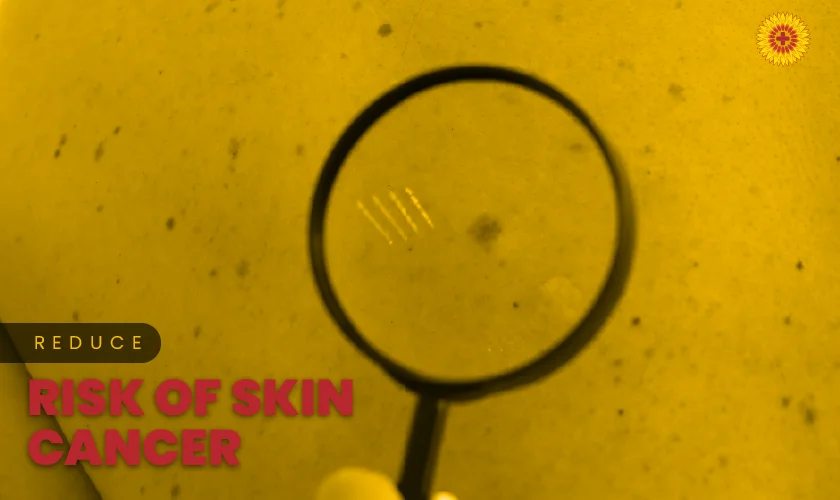What Can I Do to Reduce My Risk of Skin Cancer?
Have you ever stopped to consider the impact of your daily habits on your skin health? Many factors can increase your risk of developing skin cancer, from spending time in the sun to using tanning beds or forgetting to apply sunscreen. But the good news is that you can also do many things to protect yourself and reduce your risk.
In this blog, we’ll share tips and strategies for keeping your skin safe and healthy, from understanding the risks of UV exposure to adopting healthy habits that promote skin health. Whether you’re looking to prevent skin cancer or simply improve the appearance and feel of your skin, this guide will provide you with the information you need to make informed choices about your skin health.
So let’s dive in and explore how you can keep your skin safe for years.
Table of Contents
Protect Yourself from UV Rays
One of the main causes of skin cancer is exposure to the sun’s ultraviolet (UV) rays. Therefore, protecting yourself from UV rays is one of the most effective ways to prevent skin cancer. Here are some tips to keep in mind:
- Seek Shade: When the sun is strongest (usually from 10 a.m. to 4 p.m.), seek shade or create shade with an umbrella, tree, or another shelter.
- Wear Protective Clothing: Cover your skin as much as possible with clothing, such as long-sleeved shirts, pants, and wide-brimmed hats. Some clothing items are designed specifically to block UV rays.
- Use Sunscreen: Apply a broad-spectrum sunscreen with an SPF (sun protection factor) of at least 30, and reapply every two hours, especially during peak hours. Don’t forget to apply sunscreen to your lips, ears, and the tops of your feet.
Avoid Tanning
Whether from the sun or a tanning bed, tanning increases your risk of skin cancer. Here are some ways to avoid tanning:
- Avoid UV Tanning Beds: Besides avoiding excessive sun exposure, it’s also important to avoid tanning beds. These devices emit high levels of UV radiation, which can cause significant damage to your skin and increase your risk of skin cancer. The World Health Organization has classified tanning beds as a known carcinogen, meaning they are a substance that can cause cancer. Also, Food and Drug Administration (FDA) reports that indoor tanning can cause cancer.
- Use Self-Tanner As An Alternative: To look tan, use a self-tanner instead of tanning in the sun or on a tanning bed.
- Be Careful with Spray Tans: If you opt for a spray tan, protect your eyes, nose, and mouth, and don’t inhale the mist.
Check Your Skin Regularly
Checking your skin regularly can help you detect any changes that may indicate skin cancer. Here are some tips for checking your skin:
- Use a Mirror: Check your skin in a well-lit room using a full-length mirror and a handheld mirror.
- Look for Changes: Look for any moles, birthmarks, or other spots that are new or have changed in size, shape, or color. Also, look for any sores that don’t heal or any patches of skin that are scaly or bleeding.
- See a Dermatologist: If you notice any changes in your skin, see a dermatologist for a professional opinion.
Be Mindful of Your Environment
Your environment can also affect your risk of skin cancer. Here are some things to keep in mind:
- Check the UV Index: Before spending time outside, check the UV index for your area. The UV index measures the strength of UV radiation and can help you determine how much protection you need.
- Be Careful with Medications: Some medications, such as antibiotics and nonsteroidal anti-inflammatory drugs (NSAIDs), can make your skin more sensitive to the sun. If you’re taking any medications, ask your doctor or pharmacist if they could increase your sunburn or skin cancer risk.
- Avoid Certain Chemicals: Chemicals like coal tar and pitch can increase your risk of skin cancer. If you work with these chemicals, make sure to take extra precautions to protect your skin.
Conclusion
Reducing your risk of skin cancer is possible by taking preventative measures regularly and being mindful of your environment. Taking proactive steps to protect your skin and staying vigilant for any signs of change can help reduce your risk of developing skin cancer.
It’s important to be aware of the warning signs of skin cancer and to seek medical attention if you notice any changes in your skin. Early detection is key to successful treatment; regular self-exams can help you catch any potential issues before they become more serious.
Remember that you have the power to take control of your skin health. By staying vigilant, protecting yourself from UV rays, and seeking medical attention if you notice any changes in your skin, you can stay one step ahead of skin cancer and enjoy healthy, beautiful skin for years to come.
If you are concerned about your skin or would like to learn more about how to prevent skin cancer, Urgent Care of Kansas is here to help. We can provide expert advice and treatment to keep your skin healthy and safe. Contact us today to learn more.



No comment